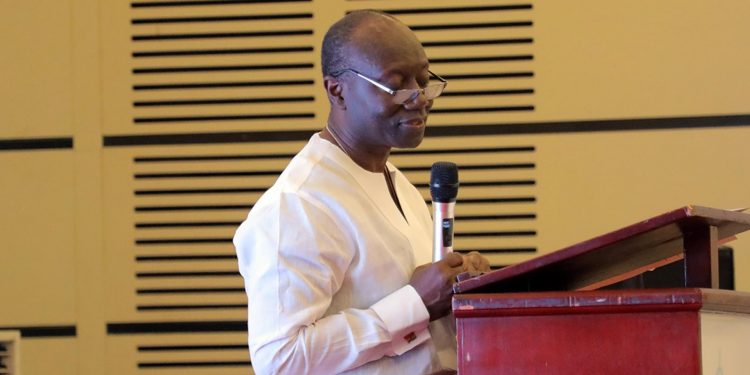President Akufo-Addo says government will come back to engage Parliament on the steps it intends to take on the future of the Agyapa transaction.
Delivering his State of the Nation (SONA) Tuesday, he hinted that the controversial deal that failed to see the light of day in the 7th Parliament will be resurrected in the 8th Parliament.
The Agyapa Royalties deal generated so much interest from several quarters because of the alleged controversies of conflict of interest, amongst others.
Some 15 Civil Society Organizations (CSOs) under the umbrella name Alliance of CSOs working on Extractive, Anti-Corruption and Good Governance also demanded the immediate suspension of the implementation of the controversial Special Purpose Vehicle, Agyapa Royalties Limited established by government though the Minerals Income Investment Fund.
Former Special Prosecutor, Martin Amidu’s Corruption Risk Assessment on Agyapa deal also raised red flags over the deal, describing the deal as fraught with corruption.
In November 2020, the President directed then Finance Minister, Ken Ofori-Atta to send the deal back to Parliament after the Assessment.
Office of the Special Prosecutor.
The Special Prosecutor in a statement issued Monday morning [November 2, 2020] announced that he had completed the corruption risk assessment about two weeks ago and submitted his report to the presidency.
Background
On August 14, 2020, Parliament approved the Agyapa Minerals Royalties Investment Agreement and four related documents to allow for the monetisation of Ghana’s future gold royalties.
Under the agreement, Agyapa Mineral Royalties Limited has been incorporated in Jersey near UK to receive and manage royalties from 16 gold mining leases over the next 15 years or so.
In exchange, the firm will list on the London and Ghana Stock Exchanges later this year and raise at least $500 million for government to invest in infrastructure, health and education.
The listing will allow private people to buy a 49 per cent stake in the firm.
However, some 22 civil society organisations called for a suspension of the deal, insisting it was not in the interest of Ghana.




